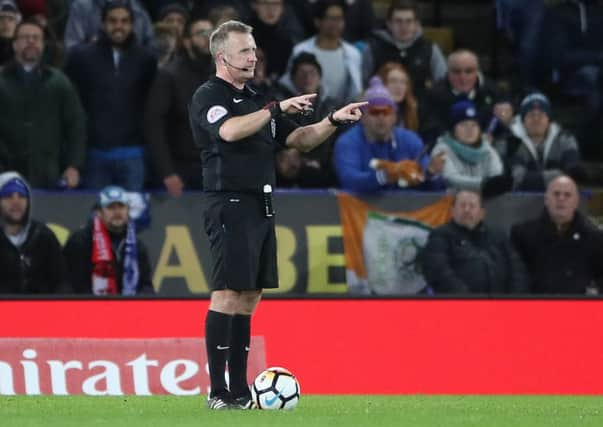Positive signs as VAR begins to convince


It didn’t need to be called upon for it’s presence to be felt.
The Video Assistant Referee (VAR) has featured a handful of times in English cup competitions since it’s inaugural outing – when Crystal Palace suffered a defeat at the hands of rivals Brighton.
Advertisement
Hide AdAdvertisement
Hide AdIt continues to be one of the most hotly-discussed topics among football fans, who wait with baited breath for it into spring to life and cause untold controversy.
The Confederations Cup final in July left supporters of the new technology red faced when Chilean defender Gonzalo Jara cynically elbowed German striker Timo Werner.
Referee Milorad Mazic missed the incident and German outrage ensued.
Having had his ear bent by the European side, the official turned to his video assistant for a thorough observation of the altercation.
Advertisement
Hide AdAdvertisement
Hide AdHe then brandished a yellow card to former West Brom man Jara, who’s brutal elbow surely warranted a harsher punishment.
After Germany had edged to a 1-0 victory over their South American opponents, ITV pundit and former Arsenal defender Lee Dixon embarked on an impassioned rant in which he branded the experimental use of VAR farcical.
Almost six months later, Kelechi Iheanacho netted a brace for Leicester at the expense of League One outfit Fleetwood Town.
The Nigerian profited from a searching Mahrez pass to score his second – only for his celebrations to be curtailed by the assistant referee, who flagged for offside.
Advertisement
Hide AdAdvertisement
Hide AdA short while later, the decision was revoked and Foxes fans roared at the doubling of their advantage – their celebrations unfettered by the slight confusion of the situation.
Television screens around the country illustrated to intrigued viewers how the VAR technology had made the call correctly and opinions shifted unreservedly.
I was sceptical of VAR initially. I was of the opinion too much technological intervention would tarnish the game, robbing it of the ability to spark debate in the stands.
Slowly, I am being proven wrong. And with some alteration, it’s conceivable VAR will silence most of it’s doubters.
Advertisement
Hide AdAdvertisement
Hide AdHuman error remains as inevitable as ever. Undoubtedly, mistakes that induce blood-boiling outrage will continue to punctuate seasons to come.
However, the introduction of VAR is – at least – threatening to slightly nullify the severity of grief-summoning mishaps on the pitch.
It runs the risk of converting football into too precise a science, an eventuality that should be avoided at all costs.
But if done properly, the incorporation of this new technology in the game could be to football’s betterment.